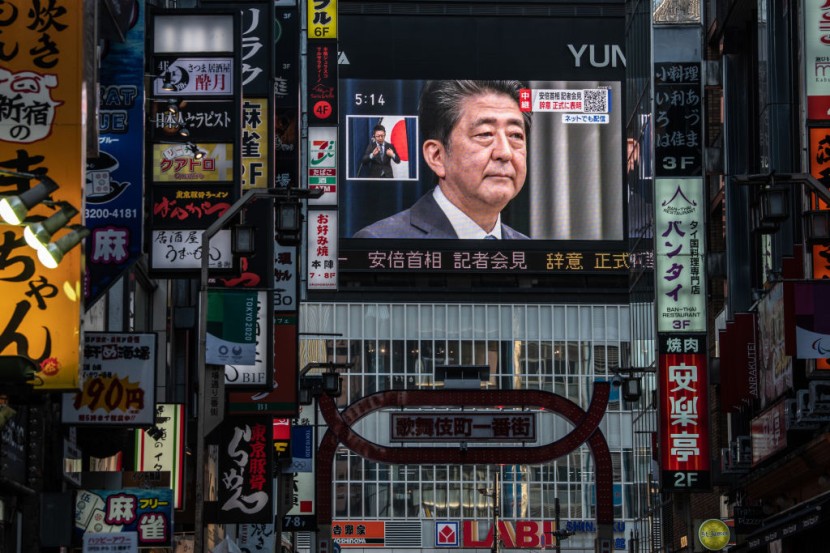
Citing health reasons, Japan's longest-serving Prime Minister, PM Shinzo Abe announced that he will be stepping down from office, leaving his position years after putting Japan as the world's third-largest economy.
In his statement on Friday, Abe said that despite the remaining year on his tenure and the challenges that are still to be faced, he was resigning from office during a news conference in Tokyo. He also apologized to the Japanese people that he cannot fulfill his duties amid the pandemic.
"I cannot be prime minister if I cannot make the best decisions for the people," the 65-year-old leader stated.
According to CNN, Abe is suffering from colitis, an inflammatory bowel disease that has no cure. The same disease was part of the reason that he stepped down from being prime minister in 2007 after only more than a year in office.
Based on the reports, on Monday, Abe made his second trip to the hospital this week at the Keio University Hospital in Tokyo.
Abe also stated that he has had the chronic disease under control for almost eight years, but his recent trips to the hospital since June showed that the disease had once again attacked. Thus, he had decided to end his stint as the country's prime minister and seek treatment.
After his 2007 resignation, Abe was re-elected into office in 2012. During his term, he has become a very dominant figure in politics in Japan. This also resulted in him winning his third term via landslide in 2017.
In 2019, despite several scandals and his reported declining popularity, Abe once again one the re-election.
During his rule, Abe's Liberal Democratic Party (LDP) has also seen success and has fractured its political rival. The LDP is currently in control of the houses in parliament, including the high majority in the Lower House.
Several reports have predicted that Abe's successor would once again come from the LDP. Abe also stated that until a successor to his position is chose, he would remain in office.
Read also: Pentagon Calls Russian Military "Provocative and Aggressive" After Encounter with US Troops in Syria
Japan's Abenomics
In 2012, during Abe's second term, Japan's economy was stagnant for decades. This prompted Abe to launch the so-called "Abenomics," a grand experiment, which his allies credit for the countries now thriving economy. Abenomics was also hailed for boosting the investor and consumer confidence of Japan bringing it in the third spot of the world's top economies, The Inquirer reported.
Back in January, Abe stated that the country has succeeded in going through the 'wall of resignation', saying that the Japan of today is different from that of the past.
In a statement by Naohito Kojima, a 55-year-old brokerage employee, he stated that Abe worked very hard as head of the ruling party and Abenomics for eight years. He also added that despite several problems that were faced by Abenomics, he believed that no other leader except Abe could have kept the government stable.
On Monday, Abe broke the record for Japan's longest consecutive premier. The record was set by his own uncle, Eisaku Sato, 50 years ago.
© 2025 HNGN, All rights reserved. Do not reproduce without permission.








